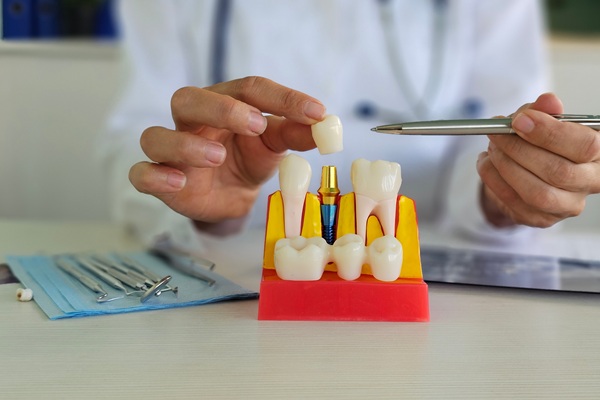FAQs about Getting a Dental Crown

Dental crowns are one of the most popular ways to restore teeth that are in bad shape. They are durable, reliable and most importantly, effective. The procedure itself is relatively straightforward, however, it is a good idea to become familiar with how things work beforehand. This ensures that the patient is prepared and knows what to expect.
Commonly asked questions about dental crown placement
Outlined below are some of the most frequently asked questions about getting a dental crown. Keep reading to find out more!
1. Does dental crown placement hurt?
Most dentists administer a numbing agent before the procedure begins to ensure that any sensations are kept at a minimum. For the most part, dental crowns are not known to cause pain, however, some patients do report that they experience some slight discomfort after the procedure is complete. Typically, this discomfort should subside within a day or so. Any severe pain or discomfort that carries on past two days should be reported to the dentist.
2. How long does it take to get a dental crown?
The dental crown process usually takes two visits that last about an hour in length. During the first appointment, the dentist will clear out the infected tooth and place a temporary dental crown, which is used to protect the tooth for a couple of weeks. During this time period, a dental lab will be responsible for creating a custom-made dental crown for the patient. Once created, the patient can return to their dentist for their permanent dental crown.
3. Are there options for dental crowns?
Yes! There are multiple options for dental crowns. The most common material that crowns are made of is porcelain or ceramic, which are both white in color, thus allowing for a discreet restoration. Some of the other options for dental crowns are metal alloy or gold materials. Both metal materials are strong and very durable, however, they are not discreet.
4. Will a dental crown last forever?
In some cases, yes. Each patient is different, which means their teeth will also vary. The lifespan of a dental crown depends heavily on the patient's oral hygiene and overall care of their mouth. People that eat a lot of tough meats or hard foods are a lot more likely to need a dental crown replacement later on in life. On the flip side, those who take extra care of their teeth may have their original dental crown for the rest of their lives.
5. Are there any special recovery instructions?
Most dentists recommend that patients take it easy after their dental crown placement. It is a good idea to consume soft foods to ensure that the crown does not become irritated or damaged while healing. Additionally, over-the-counter medications can be used for a day or so to remedy discomfort, swelling and inflammation.
Reach out today!
Any questions or concerns regarding dental crown placement should be addressed by a dentist. Reach out today to learn more or to get started!
Request an appointment here: https://princewilliamdental.com or call Prince William Dental at (703) 662-8287 for an appointment in our Gainesville office.
Recent Posts
A damaged tooth can be uncomfortable and make eating difficult, but quick treatment can restore function and appearance. An emergency dentist is a general dentist who offers fast, effective care to address urgent dental concerns. Their goal is to protect the tooth and prevent further complications. Whether caused by an accident, infection, or another unexpected…
Dental implants are a permanent, functional solution for patients with tooth loss in one or both dental arches. Both partial and full arch dental implants have become more accessible, customizable, and successful for a wide range of patients. However, they have different uses and candidacy requirements. Understanding the differences between these options helps clarify which…
An emergency dentist is essential for treating dental injuries, including a knocked-out tooth. Whether resulting from a sports injury, accident, or fall, a lost tooth requires immediate attention to improve the chances of successful re-implantation. Timely care from a skilled emergency dental professional further increases the likelihood of preserving the tooth and reducing the risk…
When a toothache persists or becomes severe, an emergency dentist can provide immediate relief. Whether it is due to an infection, a cavity, or an injury, prompt dental care also helps to prevent further complications. Understanding what to expect when seeing a dentist about a toothache can help ease concerns.Tooth pain can result from minor…


